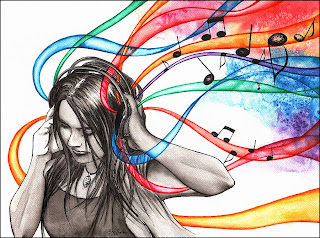THE NATIONAL ARCHIVES OFFERS SPECIAL FAMILY PROGRAMS
Family Days, Genealogy Camp, Constitution-themed Workshops, and Sleepovers
Washington, DC. . . The National Archives presents special family programming including exhibit-themed Family Days, “Constitution in Action” interactive workshops, the first-ever Archives Genealogy Camp, and two Rotunda sleepovers!
These events are free and open to the public, with the exception of the sleepovers, and will be held at the National Archives Museum in Washington, DC. Attendees should use the Special Events entrance on Constitution Avenue at 7th Street, NW. Metro accessible on the Yellow and Green lines, Archives/Navy Memorial/Penn Quarter station.
Constitution-in-Action Family Learning Labs
Boeing Learning Center
Dates: April 15, July 10, July 23, and July 29
Times: 10 am –noon, or 2-4 pm
Explore history, learn about the National Archives, and discover the Constitution’s impact on our daily lives in this fast-paced, exciting two-hour simulation. Participants will become researchers and archivists tasked with a special mission: to assist the President and his Communications Director in preparing for a very special press conference. Families will work together to locate and analyze documents and their connections to the Constitution. This activity is free, but reservations are required and must be made at least 24 hours before each Lab. Register online
Jazz Family Day
Boeing Learning Center
Date: June 7
Family-focused Jazz activities, including an instrument “petting zoo.”
Making Their Mark Family Days
Boeing Learning Center
Dates: Friday, July 18, and Tuesday, December 30
Time: 10 am – 4 pm
Discover your Signature Style and explore our newest exhibit with family friendly, hands-on activities. “Making Their Mark: Stories Through Signatures,” features original signatures of many remarkable men and women. It illustrates the many ways people have placed their signatures on history, from developing a signature style to signing groundbreaking policy into law. The stories in these records, of famous and infamous, known and unknown individuals are all part of our nation’s history, all making their marks on the American narrative. The exhibit runs in the Lawrence F. O’Brien Gallery through January 5, 2015. Exhibit highlights include:
•
A gift of thanks: Iraq’s national football (soccer) team, formerly coached by a relative of Saddam Hussein, signed a team jersey after winning the Asian Cup. This jersey was presented to President Obama in 2009.
•
A surprising Super Bowl win: The New York Giants gave this autographed football to President Obama in 2012, following the team’s fourth Super Bowl win.
•
Showtime: This signed L.A. Lakers jersey was given to President Reagan in 1988, when the Lakers had the best NBA record for the 1987-1988 season.
•
Letter from Frederick Douglass to President Lincoln asking the President to discharge his son, Lewis, from the Army because of illness. Lincoln responded: “Let this boy be discharged.”
•
Letter from pilot Amelia Earhart: Earhart wrote President Roosevelt in 1936 about her preparations for a flight circumnavigating the globe.
•
Jackie’s pillbox hat: This pillbox hat worn during her husband’s 1960 campaign for President was one of First Lady Jacqueline Kennedy’s signature looks.
•
The Autopen: The autopen machine, a modern duplicating device, was developed in the 1930s. The autopen produces a duplicate signature that is almost impossible to distinguish from the original. Visitors can try out the machine and receive their own John Hancock autograph!
“Making Their Mark: Stories Through Signatures" is made possible in part by the Foundation for the National Archives with the generous support of Lead Sponsor AT&T. Major additional support provided by the Lawrence F. O'Brien Family and members of the Board of the Foundation for the National Archives. Family and educational programming related to "Making Their Mark" is sponsored in part by Fahrney's Pens and Newell Rubbermaid - Parker Pen Company.
First-ever National Archives Genealogy Camp for Kids
Boeing Learning Center
Dates: July 21—25, 2014
Time: 9 am--noon
Ever wondered about your family’s roots and who is on your family tree? Budding genealogists will join our Education Team for five exciting days of Genealogy Camp! Campers will use ship manifests and census records to trace an immigrant family’s arrival in the United States in the early 20th century. Hands-on and interactive experiences each day. The camp is open to kids age 12-16. The camp, which is limited to 15 participants, is free of charge, but registration is required. Please email education@nara.gov for more information and to request the camp application.
Back By Popular Demand – New Dates for National Archives’ Sleepovers!
Dates: Saturday, August 2 and October 18, 2014
Given the huge success of the first-ever Rotunda sleepover earlier this year, the National Archives and the Foundation for the National Archives are partnering to host two additional overnight events for children ages 8 to 12 in the home of the Declaration of Independence, the U.S. Constitution, and the Bill of Rights. Participants will engage with National Archives documents in fun and exciting ways before rolling out their sleeping bags to spend the night in the historic National Archives Rotunda.
Guests also will be treated to movies in the Archives’ William G. McGowan Theater before turning in for the night, and will enjoy breakfast and more activities the next morning. Registration for both of the ticketed sleepovers will begin later this spring. For more information, visit here. Watch a video from the January 25 sleepover! View photos here. This program is supported by the Foundation for the National Archives.
The National Archives is fully accessible, and Assisted Listening Devices are available in the McGowan Theater upon request. To request a sign language interpreter for a public program, please send an email or call 202-357-5000 at least two weeks prior to the event. To verify dates and times of the programs, call 202-357-5000 or view the Calendar of Events online. To contact the National Archives, call 1-866-272-6272 or 1-86-NARA-NARA (TDD 301-837-0482).

















